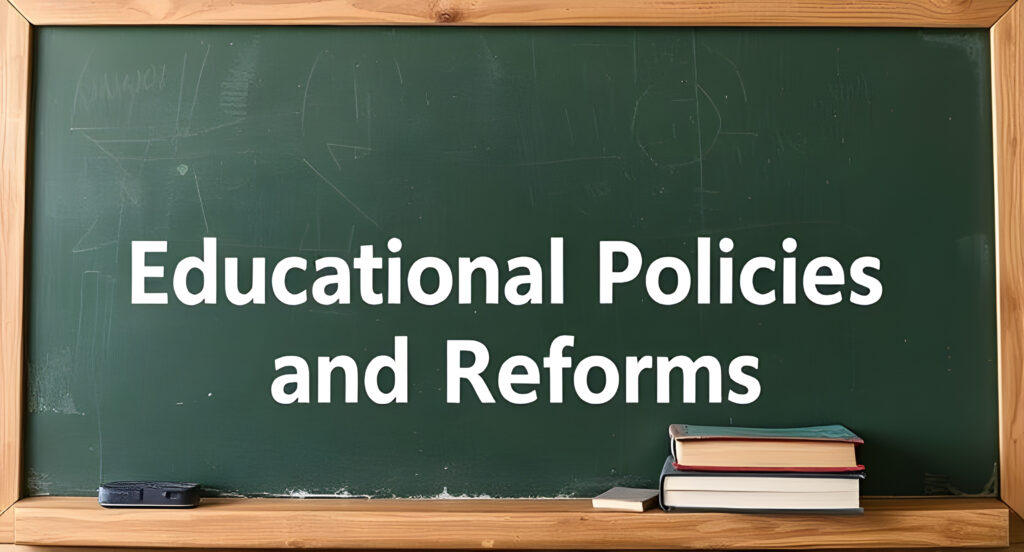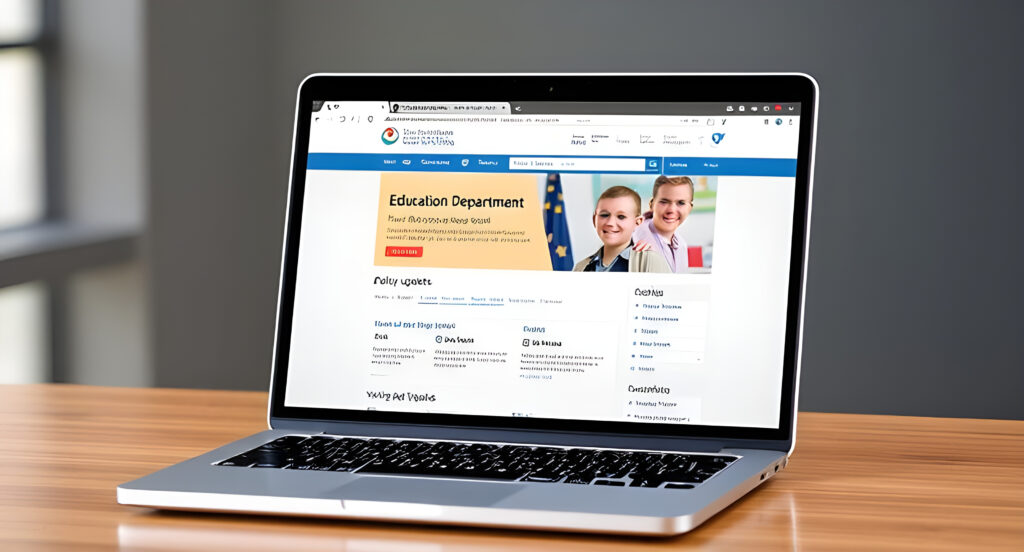How to Stay Updated with the Latest Educational Policies and Reforms

Introduction
Education policies and reforms are constantly evolving, impacting students, educators, and institutions. Staying informed about these changes is crucial for adapting to new regulations, taking advantage of opportunities, and ensuring compliance. Here are some effective ways to stay updated on the latest educational policies and reforms. These Are the Latest educational policies and reforms.
Follow Government and Official Websites
Government education departments and regulatory bodies frequently update their websites with the latest policies, amendments, and reforms. Websites such as the U.S. Department of Education, UNESCO, and local education ministries provide reliable and up-to-date information. Regularly checking these official sources ensures that you receive firsthand information about changes in educational standards and frameworks.
Subscribe to Newsletters and Alerts

Many educational organizations, policy research institutes, and government agencies offer newsletters or email alerts. Subscribing to these can provide direct updates on policy changes, upcoming reforms, and expert insights. Many newsletters also provide summaries of key developments, making it easier to grasp complex policy updates quickly.
Engage with Educational Think Tanks and Research Institutions
Institutions such as the Brookings Institution, the Education Policy Institute, and the National Center for Education Statistics publish research papers, analysis, and reports on educational reforms. These sources offer in-depth insights into policy changes and their implications. Engaging with their findings can help educators and stakeholders anticipate trends and shifts in the education sector
Follow Education News Platforms and Journals
Major news outlets and education-focused media like Education Week, The Chronicle of Higher Education, and EdSurge regularly report on policy updates. Academic journals also publish peer-reviewed studies on emerging educational trends and reforms. Subscribing to these sources ensures that you stay informed about ongoing discussions and expert perspectives on policy changes.
Participate in Webinars and Conferences
Educational webinars, symposiums, and conferences often feature discussions on policy changes and reforms. Attending these events allows for direct engagement with policymakers, educators, and researchers who provide firsthand information and analysis. Many conferences also offer networking opportunities, enabling professionals to discuss practical implementations of policy reforms.
Connect with Professional Associations and Networks
Joining professional education associations such as the National Education Association (NEA), the International Society for Technology in Education (ISTE), or local teacher unions can provide access to exclusive policy briefings and updates. Many associations also conduct workshops and panel discussions that highlight recent policy changes and their potential impact on the education system.
Utilize Social Media and Online Forums
Platforms like Twitter, LinkedIn, and specialized educational forums can be valuable sources of real-time policy updates. Following education experts, policymakers, and relevant hashtags can help in tracking discussions around reforms and new policies. Online forums and LinkedIn groups often facilitate debates and discussions that deepen your understanding of how policies may affect different educational settings

Engage with Local Education Authorities and Institutions
Local school boards, educational institutions, and regional education offices are key sources of policy information. Attending meetings, reviewing official documents, and engaging with educators can help in understanding local and national policy changes. Being proactive in reaching out to school administrators or government representatives can also clarify how specific policies will be implemented at the ground level.
Enroll in Policy and Education Courses
Online courses from platforms like Coursera, edX, and FutureLearn offer modules on education policy and reform. These courses provide a structured approach to understanding policy developments and their practical applications. They often include case studies and real-world examples that illustrate the impact of policy changes across different education systems.
Collaborate with Advocacy Groups and NGOs
Education advocacy organizations work closely with policymakers and often provide timely updates on reforms. Engaging with such groups helps in gaining insights into policy shifts and their societal impacts. Many advocacy groups also publish reports and host events that discuss pressing policy issues and propose recommendations for improvements.
Read White Papers and Government Reports
Governments and educational institutions frequently publish white papers and reports outlining proposed and implemented reforms. Reviewing these documents provides a deeper understanding of the rationale behind policy changes. White papers often include data-driven insights that can help stakeholders prepare for upcoming shifts in the education sector.
Join Discussion Panels and Policy Review Committees
Many education stakeholders have the opportunity to be part of advisory panels or policy review committees. These platforms enable direct participation in shaping policy reforms and provide an in-depth look at the decision-making process. Becoming a member of such groups not only keeps you informed but also allows you to contribute to meaningful policy discussions.
Conclusion
Staying informed about educational policies and reforms requires a proactive approach and a commitment to continuous learning. By leveraging multiple sources, such as government websites, professional networks, news platforms, and policy institutions, stakeholders in the education sector can stay ahead of changes and effectively adapt to new regulations. Whether you are an educator, student, policymaker, or parent, being knowledgeable about educational reforms ensures that you can make informed decisions and contribute to the progress of the education system. Engaging in discussions, attending events, and utilizing digital resources will further enhance your ability to stay updated and respond to evolving educational landscapes. If Interested do read our article on Expert Tips to Score High in JEE, NEET.
